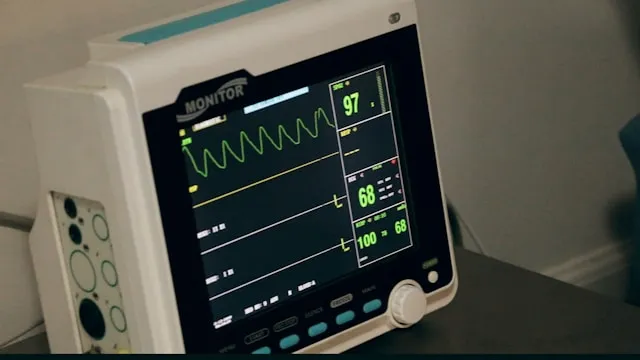High blood pressure, heart disease, and diabetes are some of the most prevalent chronic conditions affecting many populations. This is largely so because age, family history, and gender make it nearly impossible for older persons to avoid becoming chronic disease statistics. However, an understanding of these illnesses and their connections can allow for better prevention and, better still, manage them adequately.
What is High Blood Pressure?
Blood pressure is the normal force that makes blood move in the circulatory system. Hence, it's normal for everyone to have blood pressure, the rate at which blood flows in the body. During this flow, oxygen and other nutrients that nourish the organs and tissues in the body are pushed around. Therefore, it's an essential part of the human body. Blood pressure also acts as an agent to deliver antibodies and white blood cells in the human body. However, human blood pressure can be dangerously low or high with every malfunction. High blood pressure will directly increase the risk of coronary heart disease and stroke. That is because when blood pressure is high, the arteries may be more resistant to blood flow, forcing the heart to work harder in pumping blood throughout the body.What is Heart Disease?
Heart disease is any health condition that affects the cardiovascular system of the human body. Therefore, these heart conditions affect both the heart and the blood vessels. But it is also essential to note that there are different heart diseases. This is because these diseases also manifest and affect the body differently. For instance, coronary artery disease, the most common heart disease, affects the blood supply in the human body. This leads to the heart receiving less oxygen and nutrients than contained in normal blood pressure. Arrhythmia is another type of heart disease that occurs when the electrical impulses controlling the heartbeat become faulty. Hence, it causes the heart to beat too slowly, erratically, or quickly.Diabetes
Diabetes is also a profound illness that affects humans. This disease occurs when the blood glucose or blood sugar is too high. This is so when the blood glucose, the main energy source, doesn't get into the cells. Ideally, the blood glucose obtained from food should be helped by insulin, a hormone made by the pancreas to get to the cells for energy production. However, it may be a problem once the blood glucose stays in the blood and refuses to move to the cells.The connection between blood pressure, heart disease, and diabetes
One of the major connections that blood pressure, heart disease, and diabetes have is that they affect the blood vessels. Blood pressure, as the name implies, has to do with the flow of blood (mostly oxygen and nutrients) to the organs and tissues. Heart diseases and diabetes, on the other hand, also happen due to the malfunction of cells that have to do with the blood. Therefore, every human must pay attention to their heart health. Having a haven where you can safely talk about your health problems and how to prevent them is also essential. Ravkoo Health is one of the major healthcare marketplaces that can help you through this process. The reason is that online therapy and diabetes prevention services are available there. Another major link these three have is that most of the time, one occurrence often leads to the other. For instance, research shows that about two-thirds of adults with diabetes also use prescription medications to control their high blood pressure. That signifies a high chance of becoming hypertensive when an individual has diabetes. Also, there's a high chance that someone with high blood pressure may eventually suffer from heart disease or stroke. Likewise, a person with diabetes and high blood pressure is more likely to develop heart disease or another condition. Hence, every human, especially adults, must go for regular health check-ups to know how to prevent and control any of these conditions. In essence, diabetes is generally a risk factor for any cardiovascular disease. That is because diabetes can cause damage to the nerves and blood vessels around the heart, resulting in heart disease. Most of the time, hypertension and diabetes often coexist, thus leading to more damage than the occurrence of each alone.Dealing With These Conditions
The longer an individual has diabetes, the more they are prone to developing a heart condition. Diabetes and high blood pressure are extremely deadly and can greatly increase your heart attack or stroke risk. That's the reason anyone with diabetes has to go through certain treatments to help them regulate or control their blood glucose. Since diabetes has no cure, proper management from Ravkoo Health is essential to avoid other diseases, especially health-related ones.Numerous lifestyle modifications can reduce your blood pressure. Most of them are nutritional; however, regular exercise is also advised. For example, most medical professionals recommend brisk walking for 30 to 40 minutes each day, although aerobic exercise can improve your heart health.Exercise not only lowers blood pressure but also strengthens the heart muscle. It might lessen vascular stiffness as well. Although it usually comes faster due to type 2 diabetes, this occurs as people age. You get to better regulate your blood sugar levels by exercising. You may create a customized workout program by working closely with your physician.Conclusion
Leading and living a healthy lifestyle is essential to help regulate these conditions. For instance, you should try to eat and maintain a balanced diet. You should also quit smoking and avoid exposure to second-hand smoke. In addition, regular exercise, reducing alcohol intake, maintaining a healthy weight, and engaging in activities that help relieve anxiety and stress are some essential coping techniques.While the tips are essential, they are not substantial, and you will need professional help. However, there are services at Ravkoo Health that can help if you or someone you love is having trouble managing any of these chronic diseases. Participants in these programs can learn the skills needed to manage chronic diseases' effects on their lives.
Reviewed by







